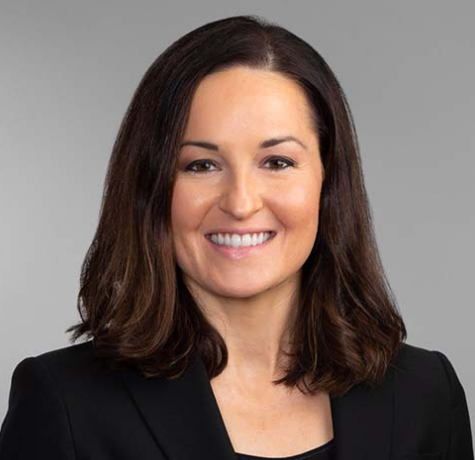
- Details
- By Native News Online Staff
Lauren J. King, a tribal citizen of the Muscogee Nation, was confirmed by the United States Senate on Tuesday to serve as a federal district judge for the United States District Court for the Western District of Washington. Nominated by President Joe Biden on May 12, 2021, she was confirmed by the Senate in a 55-44 vote.
Upon taking her oath, King will be the first Native American federal judge in Washington state’s history, the second in the United States Courts for the Ninth Circuit, and only the fourth active Native American federal judge in the entire country.
Want more Native News? Get the free daily newsletter today.
The United States District Court for the Western District of Washington is one of 94 U.S. District Courts. King will maintain chambers in Seattle, Wash.
“We’re thrilled to learn of the historical confirmation of Ms. Lauren King to a federal judgeship,” Muscogee Nation Principal Chief David Hill said. “She has been a champion for Indian law, a warrior for sovereignty and is a proven example of leadership among her peers in the profession. When strong, Muscogee women make history, it’s always a good day.”
“We are honored and excited to have such a qualified and respected lawyer as Ms. King joining our bench,” said Chief Judge Ricardo S. Martinez of the Western District of Washington. “This historic appointment by President Biden acknowledges that Washington state has 29 federally recognized Native American tribes that look to our court to protect their rights and resolve disputes. Her confirmation by the Senate not only serves to increase public confidence in the impartiality and inclusiveness of the federal courts but also enhances the administration of justice in our community,” Chief Judge Martinez added.
Wade Henderson, interim president and CEO of The Leadership Conference on Civil and Human Rights, released the below statement applauding the Senate’s vote to confirm Lauren King to the U.S. District Court for the Western District of Washington:
“The judiciary must reflect the diversity of our nation and of the legal profession, including by having more judges with experience protecting and defending civil rights. Lauren King brings important, much-needed perspective to this court given her extensive experience in tribal law, and the Western District of Washington will be well served with her on the bench. Notably, she will be the first Native American to serve as an Article III judge in the state of Washington.”
Born in Oklahoma City, Okla., King received her Juris Doctor in 2008 from the University of Virginia School of Law, where she was editor-in-chief of the Virginia Journal of Law and Technology.
King is a partner at Foster Garvey, P.C. (formerly Foster Pepper PLLC) in Seattle, where she has practiced since 2012. She chairs the firm’s Native American practice group. King served on the firm’s Executive Committee in 2017 and 2019 and on the Compensation Committee from 2018 to 2019. She also has served as a pro tem appellate judge for the Northwest Intertribal Court System since 2013. Previously, King was an associate at Byrnes Keller Cromwell LLP and K&L Gates LLP (formerly Preston Gates & Ellis LLP) in Seattle.
King has devoted substantial time to serving her community. She has served on the board of the Northwest Tribal Court Judges Association since 2015. King has been a member of the Mvskoke Reservation Protection Commission since 2020 and served as a board member of the Seattle Indian Health Board from 2017 to 2019. In 2020, Governor Jay Inslee appointed her as commissioner on the Washington State Gambling Commission. King also taught Federal Indian Law at Seattle University School of Law as an adjunct professor.
Federal district court judges are nominated by the president, confirmed by the Senate and serve lifetime appointments upon good behavior.
For decades, national American Indian organizations have advocated for more Native American nominees for federal judgeships.
Despite these efforts, Native Americans have been historically under-represented in the federal judiciary. In the 231-year history of federal courts, only four Native Americans have been appointed as federal judges. If the federal judiciary reflected nationwide demographics, there should be at least 14 Native Americans serving as federal judges.
More Stories Like This
Native News Weekly (August 25, 2024): D.C. BriefsUS Presidents in Their Own Words Concerning American Indians
Haaland Meets with Southern New Mexico Law Enforcement on Public Safety Priorities
This Day in History – Dec. 26, 1862: 38 Dakota Men Executed by Order of Abraham Lincoln
Merry Christmas 2025
Help us defend tribal sovereignty.
At Native News Online, our mission is rooted in telling the stories that strengthen sovereignty and uplift Indigenous voices — not just at year’s end, but every single day.
Because of your generosity last year, we were able to keep our reporters on the ground in tribal communities, at national gatherings and in the halls of Congress — covering the issues that matter most to Indian Country: sovereignty, culture, education, health and economic opportunity.
That support sustained us through a tough year in 2025. Now, as we look to the year ahead, we need your help right now to ensure warrior journalism remains strong — reporting that defends tribal sovereignty, amplifies Native truth, and holds power accountable.
 The stakes couldn't be higher. Your support keeps Native voices heard, Native stories told and Native sovereignty defended.
The stakes couldn't be higher. Your support keeps Native voices heard, Native stories told and Native sovereignty defended.
Stand with Warrior Journalism today.
Levi Rickert (Potawatomi), Editor & Publisher

